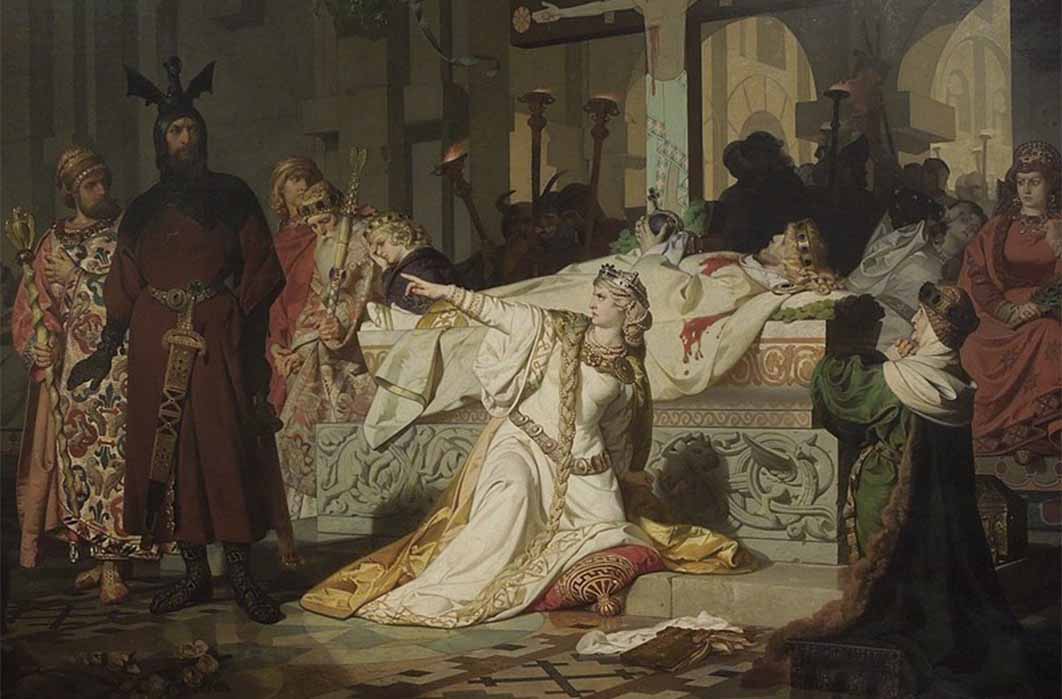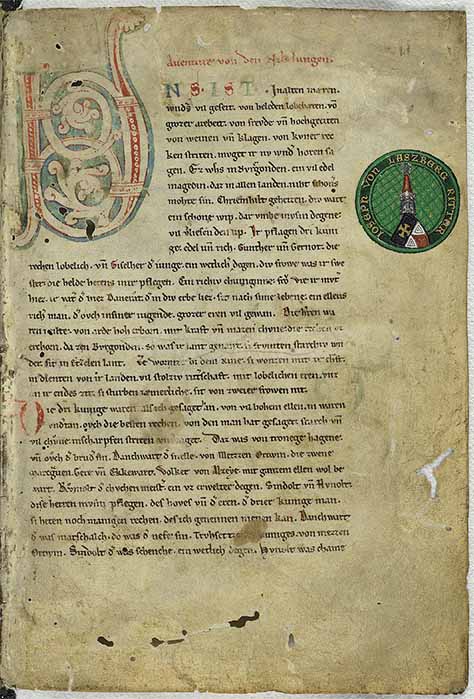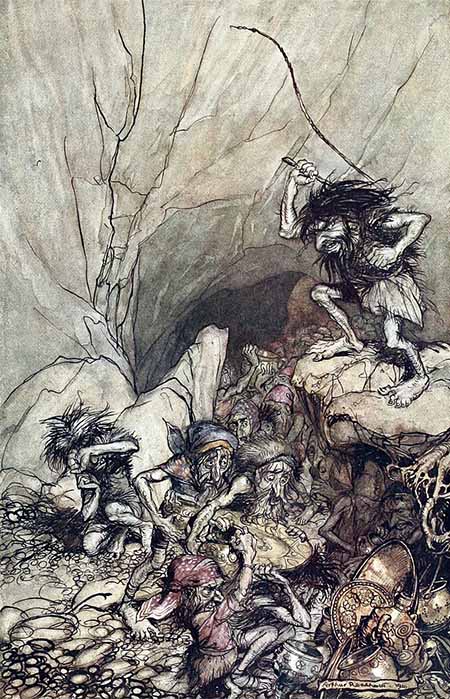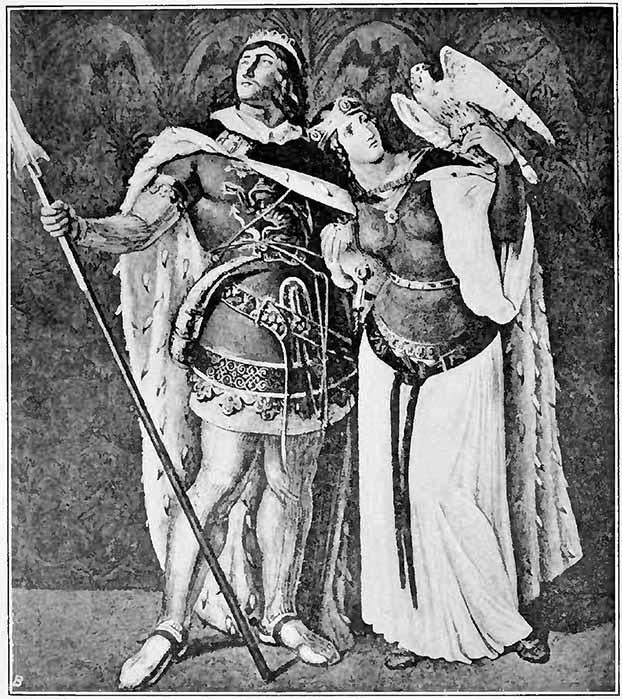
Nibelungs – Germanic Race Of Elves Or Giants?
The Nibelungs are one of the most mysterious peoples of the ancient world. Some scholars regard them as a race of dwarfs or elves. On the other hand, their close identification with giants suggests that they may have been viewed as die scions of a mythical race of giants. The story of the Nibelungs appears in the Nibelungenlied a Germanic heroic legend, as followers of the great Nordic hero Sigfrid.

First page from Nibelungenlied Manuscript C (c. 1230) (Public Domain)
The Nibelungenlied
The Nibelungenlied was based on Germanic heroic legends and written in Middle High German in about 1200 AD. The story for the most part agrees with the epic of Sigurd, told in the Icelandic Eddas, especially the Poetic Edda, as well as the Völsunga saga which were based on Old Norse traditions. The story commences with the mighty prince, Sigfrid, arriving at the Burgundian court of Gunther (Gunnar) at Worms on the Rhine to woo Gunther’s sister, Kriemhild, famous for her exceptional beauty. Sigfrid’s parents, Sigemund and Sigelinde, were from Santen (Xanten) in the Netherlands, where they later ruled as King and Queen. Gunther ruled with his brothers, Gernot and young Giselher, all of them sons of Dankrât and Uote (Uta). Among those who held at the court were Hagen of Tronege and Dankwart, sons of Aldrian, and their sister’s son, Ortwin of Metz. When Sigfrid’s company of knights with their shining armour arrived, Gunther called for Hagen, who knew all the kingdoms and foreign lands well, to inform him about Sigfrid.
Although Hagen had never seen Sigfrid before, his reputation preceded him. Above all, Hagen told the marvellous story of Sigfrid’s possession of the Nibelung treasure and the brave Nibelungs who guarded it. Sigfrid stumbled upon the Nibelungs while dividing their treasure between their princes, Schilbung and Nibelung, right after they carried it out of a hollow mountain. A fight ensued and the hero killed the princes as well as 12 giants supporting them, gaining the Nibelung sword, Balmung, in the process. He also overpowered 700 knights from the land of the Nibelungs who became his followers. Additionally, Sigfrid subdued their servant dwarf, Alberich, obtaining a magic cloak of invisibility from him. Sigfrid thus became lord of the treasure. He then ordered the Nibelungs to carry the treasure back into the mountain and appointed Alberich, who swore fealty to him, in charge of guarding it.

The dwarf Alberich (with whip) drives on the Nibelung dwarfs, who collect gold and other treasures, by Arthur Rackham, (1910) (Public Domain)
After telling the story, Hagen proclaimed that “No knight ever had such great strength”. Sigfrid was invincible as a result of him having slain a dragon and bathed in its blood, which made his skin thorny so no weapon could penetrate it. Later it was disclosed that, when Sigfrid bathed in the dragon’s blood, a broad lime leaf fell on his back between his shoulder blades, leaving him vulnerable in that single spot.
- The Magical, Mythical Elves and Dwarves of Norse Legend
- The Enigmatic Cimmerians Crisscrossing The Caspian And Caucasian Steppes
- The Many Legacies of Brunhilde: Ancient Shield Maiden, National Symbol, and ‘Fat Lady’ of the Opera
While Sigfrid stayed at the Burgundian court, he consented to marry Kriemhild in exchange for helping Gunther obtaining the hand of Brunhild. Brunhild was an Icelandic Queen ruling in Isenstein. As she said, “If he masters me, he shall have me as his wife”, her hand could only be won by competing with her in three games, namely spear throwing, stone hurling and long jumping. For a suitor to have failed in such a quest meant forfeiting his head. In order to accomplish this feat successfully Sigfrid used his cloak of invisibility, which allowed him to do whatever he pleased without being seen. He also overpowered the Queen in her bedroom, taking her girdle off her waist as well as a golden ring from her finger.





